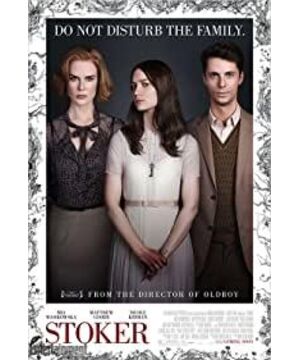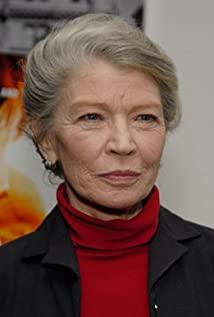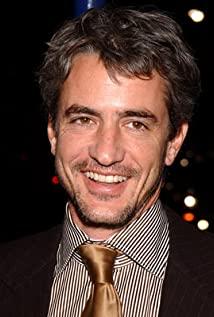Kind gold and I want revenge most of my heart, and the bat has too much content, the main line is unclear, the rhythm is strange, and the plot is complicated.
Director Park's central idea, in addition to the well-known revenge, may be summed up in the kind words of Jin Zili: "Everything has to be beautiful."
As a virgin, Director Park finally borrowed Hollywood details and art to be able to express The dark lines, details and composition are done to the extreme, coupled with the god-like soundtrack, it is enough to keep your sensuality behind closed doors for several years.
Not to mention Jaguar Steinway, the mansion in the forest gate, nor to say Aunt Ji and Gu Dizi who are carved out of marble, even in Jane Eyre, they were spurned by thousands of people, and countless other idiots and resentful women roared and let go of the shark Mi Ya. . Hua and any super aunt Liang were photographed pale, thin, moist and sexy.
Besides revenge and beauty, the new theme this time is "Hunting". As for what is said around this theme, first of all, it is not reflected in the plot, but in the details and symbols.
About spiders and sexual consciousness, dung beetles and stones on graves, keys and concealment in enlightenment, clothing and inheritance, snow angels and slaughter, etc., hints and contrasts, everyone has written quite clearly.
As for metaphors, there are still the following points that have not been complained about so far, so I will summarize them here:
1.
The film begins with the statue against which India picks up the blisters on the foot.
Students who are familiar with European art history may start picking their feet in India. Before the statue appeared, they thought of this subject because he was so famous. After being famous for thousands of years, people still use various materials to copy this statue over and over again, and gods make up some messy stories of loyalty and patriotism to cover up the essence of their pedophiles/SM lovers.
I think Heinrich von Kleist and Thomas Mann are relatively uncodified and sincere about this discussion of the statue. Kleist said: The beauty comes from the authenticity of the boy's movements. The skin is broken when picking blisters, and then a lot of water flows out and then it feels a little bit painful. It's the best feeling. I can't do anything, so I chose it. If it's because of the boy If you are impressed by the beauty of your body and do this action, it will be in vain to pick 10,000 blisters. And Thomas Mann, a pedophile, is more straightforward: the little boy with red fruit is the most beautiful, and every hair is seducing me.
two.
Metaphors about shoes.
It is said that the plot of shoes was not in the original script, and Director Park proposed it himself and then added it.
The possible explanations are as follows:
1. The metaphor of growth: Of course, the literal understanding is the footprint of growth. The image on the screen is that 18-year-old India sleeps in the middle of 18 pairs of identical shoes from childhood to adulthood, and then Uncle Charlie put on her life's shoes. The first pair of high-heeled shoes, India, who was still in anger, suddenly (acted) a little dizzy, and began to show an affinity for Uncle Charlie.
At this level, Uncle Charlie's desire for control is embodied, and from the final ending, it can be seen that he wants to control and dominate India rather than care and love India, so that she can grow up according to his plan and become his " Confidant", and finally died under his design. That's what Uncle Charlie's seemingly illogical behavior stems from: he doesn't have the ability to love.
2. Sex, constraints and inheritance. As a descendant of foot fetish, we have the story of Fuxi's mother Huaxu stepping on the footsteps of God and giving birth to Fuxi and Nuwa since ancient times. The effect of the Chinese people's small-heeled high-heeled shoes is exactly the same. Men use a shoe as a basis to find the woman in their hearts, and there are many stories about women cutting their feet to fit their shoes in order to cater to men. Shoes are a woman's gauge, and they measure a woman's length according to a man's standard, but women are jealous and even crazy about it. In the movie, Evie was most surprised not even overhearing Charlie saying that he was going to take India to New York, but seeing India wearing high heels that he thought was prepared for him. All of a sudden, the old hatred and the old hatred were full of anger. Regarding the role of Evie, I saw that some analysts said it was a symbol of desire, and I felt it was the most appropriate. Evie represents a lively worldly desire, so her character is out of tune with the isolated Stoker family and is painful. I thought that having a child would improve the relationship with the family, but who knew that she would give birth to a pure-blooded cold-blooded killer heir. Richard goes to great lengths to raise his daughter, so Evie loses the last bit of her husband's attention, and the mother-daughter relationship is strained. And when she finally felt threatened by her daughter, she had to take on the role of mother. Textbook-style electra complex, needless to say.
I see that many people don't understand why Richard would let her wear the shoes Charlie gave her since Richard concealed Charlie's existence from India. The answer may be that Richard himself didn't know that the shoes were from Charlie, because the housekeeper Mrs. McGarrick was Charlie's eyeliner. It was only discovered by India after Richard died when Charlie returned, and India didn't know about it until he put on high heels. Shoes are from Charlie.
three.
The duality of roles.
If it is said that black hair and blue eyes represent the blood of the Stoker family, just to emphasize the inheritance relationship between Charlie and India, it cannot explain Richard's brown pupils, Aunt Qin's blond hair and Whip
The black hair of the classmates, and the younger brother Jonathan, who was buried alive by Charlie, is also different from the blond hair of the brothers. In fact, as mentioned above, the theme of this movie is Hunting. If we divide it according to the relationship between attacking and receiving in the hunting game, the character represented by the hair color will be clear at a glance.
The black hair color represents the attacker, or the person who is consciously playing the hunting game. In the play, there is Charlie, an expert who is crazy about hunting (killing), and Richard, who is rationally restrained and restricts hunting to the game itself, is guided by Richard and Charlie and finally walks India, who went on his own hunting path, had hunting ambitions but was not capable enough to underestimate his opponent and killed Whip and the sheriff; the rest of the characters were Aunt Qin, the housekeeper, the boy who bullied India but flinched, and even Crowford was infatuated with Charlie. The staff, as well as Jonathan, have the same golden hair color, which symbolizes their purity, but also their ignorance, or their natural insensitivity to hunting games, or their natural prey attributes. And Evie's red hair is tangled desire, she feels lonely, because there is no opponent/companion in the Stoker family to play with her desire level game, just like Charlie is lonely because there is no opponent/companion to play with for a long time He played the same game of killing. Charlie's strong possessiveness makes him unable to bear Jonathan's monopoly of his brother's care, just as Evie can't bear India's monopoly of her husband and thus hates her daughter. In the scene where she dances with Charlie in the restaurant, Evie says that she will be the lead dancer at the end of every dance, implying her status as a general in her lust game world, and Charlie, a super control freak, replied with a polite smile. You can take it. On the one hand, it is self-confidence, and on the other hand, it also shows that he has no interest in Evie's games at all. Of course, in the end, Charlie even beat Evie in this game.
Four.
about the theme of the film.
Of course, the works of authors like Park Chan-wook, who loves to use symbols and symbols, can always be extended infinitely. But if you go back to the roots of Uncle Charlie's theme, ie Fatty's The Shadow of Doubt, it's likely to conclude that it's more of a psychological detective than a thriller. Similar to The Shadow of Doubt, the identity of Uncle Charlie's murderer is revealed in the first third of the film. So the remaining two-thirds are just the author's boring dazzling show of pornography? of course not.
As mentioned earlier, Director Park's new theme is Hunting, and around this hunting game, it is about India's doubts in this game. This doubt is like a cloud, shrouding India and Charlie's dealings, and shrouding India and Charlie. The interaction and rescue of the people around them are shrouded in India's own detection and definition.
Remember the tension with India when Charlie first appeared? When Charlie just came out, he always stood on the commanding heights to observe everything, and India kept changing positions at the funeral to avoid Charlie's tracking, but Charlie still jumped from a height, and educated (implied) sex Don't make me stand higher than you.
India has been very protective of Charlie from the beginning, firstly because the hunter feels that Charlie is a more powerful and dangerous being, and feels that he may be his target, and secondly because his sexual consciousness has not been fully opened. Women love Charlie and are fascinated by his charm, and as India slowly realizes her desires under Charlie's guidance, she also begins to doubt her own judgment and intuition. After the night of playing the piano and the forest, she realized that the difference between herself and her mother, and even her father, was the blood in her body, which made her identify with Charlie. But doubts about this identification lead her to try to approach her mother, to describe to her the world of game hunting, but to warn her and seek rescue: there is a game of game going on between Charlie and her and them, and they are in Among the disadvantages, she will wait for the opportunity in secret until the situation is clear. And this one and only attempt to communicate was cut off by a jealous Evie, so that India had to act alone.
In the film, the father and daughter hunt with repeated replays. The silent gesture of the father and the inquiry in the eyes of the daughter are the revelation of the relationship in this hunting game: the father is gone, the mother replaces Richard with Charlie and still regards herself as a rival in love, while Charlie, who has been patrolling in the dark, is an enemy or a friend? If it is the enemy, when is the best time to attack? India's doubts swayed left and right under the constant discovery of new clues, as well as Charlie's aggressive fiddling, and Charlie had a great start all the way, from using the corpse hidden in Mrs. McGarrick as a test The brown chocolate is on top, the golden vanilla flavor is on the bottom, echoing the dichotomy of hair color, India's violent and bloodthirsty side emerges at the moment), and then the two are close comrades in the whip and share the killing, making India involuntarily relax its guard. My feelings for my father (we often hunted together before) were somewhat transferred to this uncle who looked very similar to my father, and I agreed with my mother's lust for each other. Finally, when I read Charlie's letter, I started because of the love expressed in Charlie's letter. Moved and identify with Charlie.
After stumbled upon Charlie's lies, doubts are shattered by Charlie's showy confession. India has gone through everything back to the original point, that is, that Charlie is a danger, but has a new understanding and affirmation of her own identity. She is now more convinced of her own judgment, so she asks the uncle who claims to love her to leave. Crazy Charlie proudly told India about his murder of Richard. So India made a killing, pretending to be moved by Charlie to put on Charlie's high heels, in fact, this vertigo is mostly a disguise, even if it may be somewhat shaken. India's next conversation with the sheriff and the part of playing the piano fully performed the words "virtual and arrogant". Her purpose may be to lure Charlie out of the house and wait for an opportunity to solve it, but her mother who woke up unexpectedly found that Charlie had murdered her intentions. India In order to save her mother, she had to act in advance, but she was completely disappointed that she succumbed to her desire and chose Charlie over her own mother. It may also be to escape the curse of Stoker's blood. India went to New York according to his father Richard's arrangement. So at the end of the story, India put on her mother's shirt, tied her father's belt, and wore high heels given by her uncle. She was sexy, rational, and cruel.
five.
About the scissors at the end. I think Charlie wanted to kill India, and India probably expected that too. Charlie doesn't understand love and has no appetite or sexuality (possibly a hint of his vampire status), only possessiveness and the thrill of a successful killing are dominating him. He also doesn't need human company, so he chose to stay in a mental hospital voluntarily for more than ten years after he became an adult, just to start the light source plan when India becomes an adult. The reason why Charlie is so enthusiastic about India is probably because India is the new focus of his brother's life, and secondly because he heard from Mrs. McGarrick that India is similar to himself (hate being touched, sensitive, not social, likes hunting, etc. Wait). On the one hand, he needs to find his approval from India and share the thrill of killing. On the other hand, I think he is trying to prove his equality with India to prove his brother's love for him. Charlie, who is mentally similar to a child, lacks the ability to love, but desperately desires love and possession, so when he feels cheated or betrayed, he reacts strongly when he is abandoned (see the scene of killing Richard and auntie Gin).
Final Bugs.
Although the forest scene was beautifully shot, Charlie first took off Richard's belt from himself and tied Whip's hand, and then tied Whip's foot with his own belt. The whole movement is smooth and natural and can be regarded as a classic. How did you recall it in India? In the follow-up, Whip shot India down again, and Richard strangled Whip to death with a belt?
There is also a personal feeling that the scene of killing the sheriff is also unclear. Now that you've decided to pursue a new life, wouldn't killing the sheriff expose yourself faster? Although the final scene picture, the lines and music are still quite enjoyable to interact with.
View more about Stoker reviews











